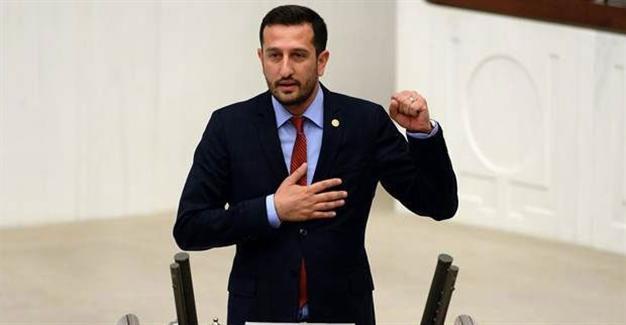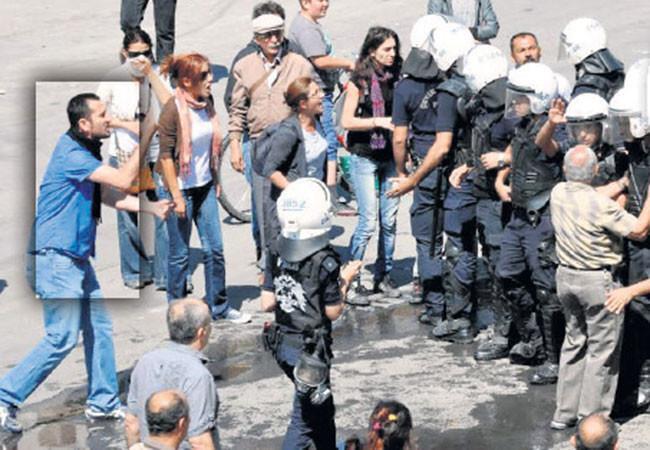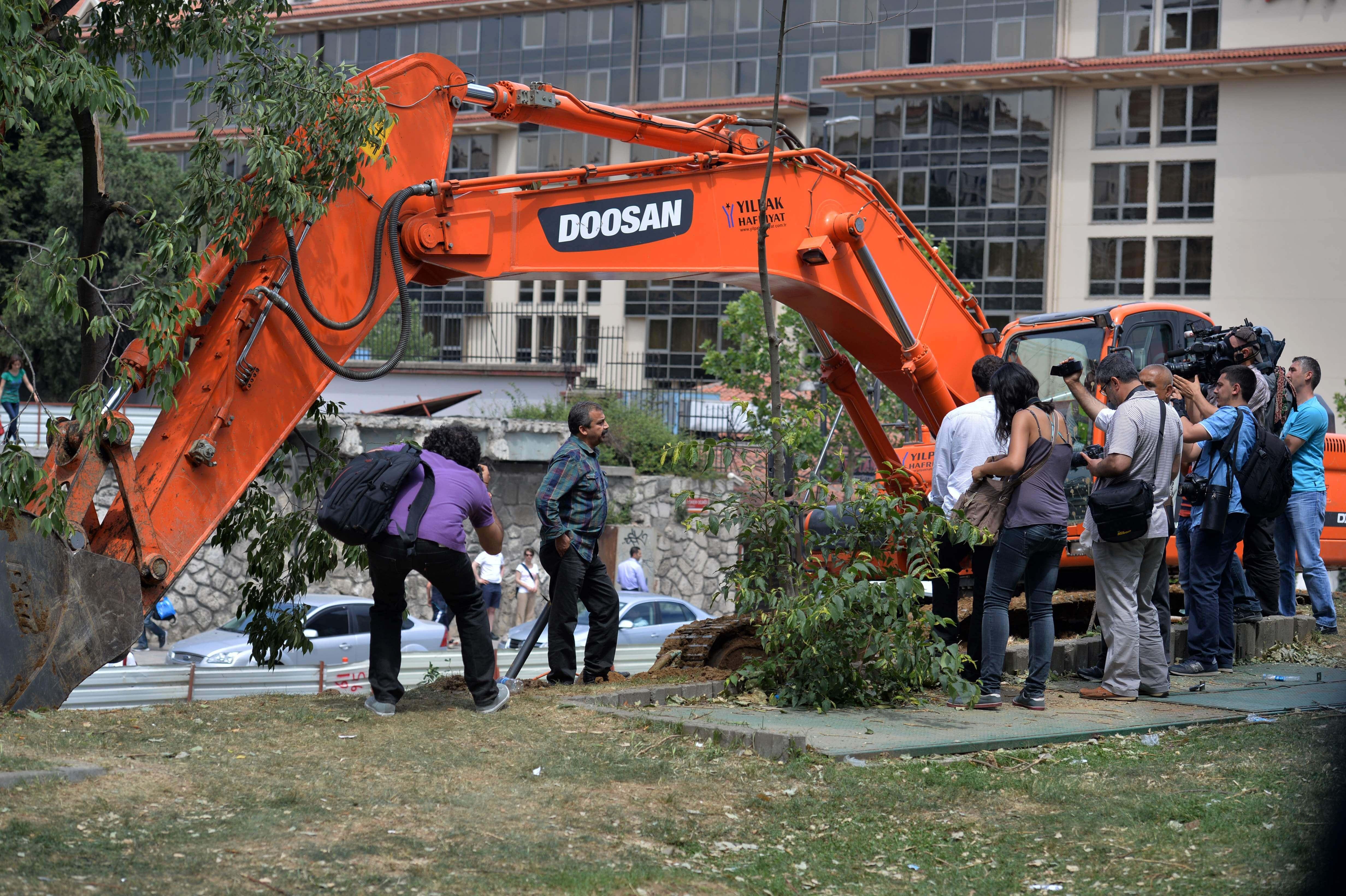‘Gezi’ salutes mark opening of Turkey’s new parliament
ANKARA
 Two years after the massive Gezi Park protests shook Turkey’s political and social landscape, four deputies have sworn in to the new parliament by saluting the ground-breaking movement.
Two years after the massive Gezi Park protests shook Turkey’s political and social landscape, four deputies have sworn in to the new parliament by saluting the ground-breaking movement.During the oath-taking ceremony in parliament on June 23, Republican People’s Party (CHP) deputies Ali Haydar Hakverdi, Gamze Akkuş İlgezdi and Hilmi Yarayıcı raised their left fists in the air on the rostrum in honor of Gezi.
Hakverdi, a 36-year-old lawyer, played an active role during the anti-government protests in the summer of 2013, during which he was repeatedly photographed confronting the police at the barricades in Ankara’s Tuzluçayır neighborhood (below). Tuzluçayır is a hotspot of activism organized by the members of local left-wing and Alevi communities.

He was also involved in the legal cases regarding the deaths of several Gezi victims, including Berkin Elvan, Abdullah Cömert and Ethem Sarısülük.
“For the past 15 years I have been an insurgent by day and a lawyer by night,” Hakverdi told daily Milliyet before he was elected.
“I promise you that we will continue to fight,” he said in a YouTube recorded in his office at parliament moments after he was sworn in as a deputy.
Two HDP deputies in spotlight
During the oath-taking ceremony, two MPs from the Peoples’ Democratic Party (HDP) were also in the spotlight in relation to Gezi.
HDP deputy Beyza Üstün wore a red carnation and a black ribbon to commemorate the Gezi Park protests and the victims of the recent wave of femicides in Turkey.
Sırrı Süreyya Önder, who famously halted a bulldozer at Gezi Park in May 2013 (below), when he was also a deputy, made no reference to the protests when he took his oath again on June 23.

The Gezi protests had begun in 2013 as an effort to stop bulldozers from razing the central Istanbul park, one of the few green spaces left in the city’s Taksim neighborhood, to build a shopping mall. Unrest quickly spread across Turkey, developing into a revolt against what protesters said was the increasing authoritarianism of then Prime Minister Recep Tayyip Erdoğan’s decade-long rule.
Erdoğan ascended to presidency in August 2014, five months after his ruling Justice and Development Party (AKP) won municipal elections. With the June 7 general elections, however, the AKP lost its parliamentary majority to form another single party government, as the HDP managed to pass the 10 percent national election threshold.
Analysts say Gezi sowed the seeds for alternative political movements to develop and affected Turkey’s largest parties. The main opposition CHP organized primary elections to select its deputy candidates, which paved the way for the nomination of grassroots-supported figures such as Hakverdi. The HDP, meanwhile, entered parliament on a left-wing platform that included a number of protester demands, despite the skepticism of some of its leading figures toward elements of the Gezi protests during their infancy.
















